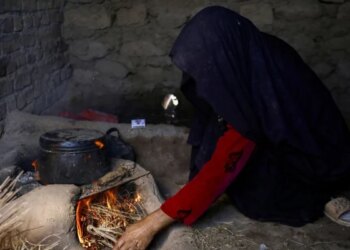Select Language:
A widespread communications blackout struck Afghanistan on Monday, several weeks after Taliban authorities began cutting fiber optic connections in multiple provinces to curb “vice.”
Netblocks, a cybersecurity and internet governance monitor, reported, “A nationwide telecom blackout is now in effect,” and noted that current connectivity is at only 14% of normal levels.
The organization suggested that the incident “seems to align with the deliberate disconnection of services.”
AFP lost contact with its Kabul bureau around 6:15 pm (13:15 GMT), including mobile phone service.
Earlier this month, Taliban leaders launched a crackdown on internet access, severing connections in various regions. This action, ordered by Supreme Leader Hibatullah Akhundzada, resulted in the shutdown of high-speed internet in several areas.
In northern Balkh province, fiber optic internet was completely prohibited on Akhundzada’s orders, according to provincial spokesperson Attaullah Zaid on September 16.
“This step was taken to prevent vice, and alternative solutions will be implemented nationwide to ensure connectivity,” he posted on social media.
AFP correspondents also observed the same restrictions in Badakhshan and Takhar in the north, as well as Kandahar, Helmand, Nangarhar, and Uruzgan in the south.
Over recent weeks, internet services have been sluggish or sporadic.
In 2024, Kabul had promoted its 9,350-kilometer fiber optic network—largely established by previous U.S.-backed administrations—as a top priority to integrate the country with the global community and alleviate poverty.
Since reclaiming power in 2021, the Taliban have introduced various restrictions, including those affecting internet access.







